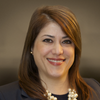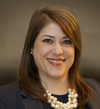In late December of last-year I received the dreaded summons to serve on jury duty for late January of this year in lower Manhattan. I quickly looked at my calendar to figure out how much havoc this was going to cause in my life. Fortunately, it didn’t conflict with any important meetings or out of town trips. As the day to report as a juror drew closer, I was barraged with advice: just don’t show up, appear very hostile, appear disengaged—the amount of advice was endless.
When the day finally came, I dutifully took the subway down to the New York County Supreme Court Building on Centre Street. The building was surrounded by television cameras and reporters—it turns out Harvey Weinstein’s trial had started a few days before—so I made my way through the phalanx of cameras up to the top floor to the jury room with more than 100 of other jurors who were probably as equally excited to be there as I was.
For the first case of the day my name was drawn, as were the names of approximately 50 other people. We were escorted into a large courtroom and the judge laid out the basic facts of the case, but more importantly for me, discussed the importance of jury trials and the role of the juror in our legal system. She emphasized the significance of a trial by your peers and how it’s one of the bedrocks of our democracy.
My name was the first name picked to go into the jury box for questioning, followed by 11 others. We answered set questions and were then questioned by the judge and by both the prosecuting and defense attorneys. During this process I realized just how diverse the jury pool for the trial was in terms of ethnicity, age and socioeconomic backgrounds. Behind me in the jury box was a retired New York Times reporter. Next to him was an elementary school teacher. There were individuals who spoke English as a second language. There were potential jurors who either had served time in jail or had close family members who were currently in jail.
What I realized as I went through the jury process, and it brought back memories of having done it twice before, is that we live in a diverse and vibrant community and we need to embrace that diversity and recognize that it is one of the strengths of our society. It’s so easy to cling to our own comfort zones and create rigid boundaries that we rarely cross. We have to recognize that in order to have sustainable and strong communities, they need to be diverse and we need to care deeply and equally for all the members of the community. In listening to one potential juror, who seemed to be barely in her twenties, talk about the fact that her husband was currently in jail, and her mother was in jail, I realized that the current discussion about bail reform is very relevant, and the effects of poverty in our communities is crushing.
So, the next time you receive that jury duty summons, you’ll probably do what I did and think about how it may disrupt your life, but I hope you’ll also remember that it’s one of the responsibilities of being a member of the larger community. It’s what makes our democracy unique, and God forbid, if ever you or someone your care for finds themselves in a court room, wouldn’t you want 12 of your peers who were engaged and impartial?
In closing I want to recognize three very special HGAR members who were acknowledged this past week at the NYSAR business meetings in Albany. HGAR Past President Marcene Hedyati was inducted into NYSAR RPAC Hall of Fame for her contributions to RPAC over the years. Bonnie Koff, the Secretary Treasurer of the Hudson Gateway Realtor Foundation, received the NYSAR Community Service Award for her tremendous work in raising monies for the foundation. Finally, HGAR Past President Dorothy Botsoe received the Lawrence B. Caldwell RPAC Service Award for her tremendous efforts in promoting and personally supporting RPAC. I believe these three individuals showcase the importance of service to our communities.












